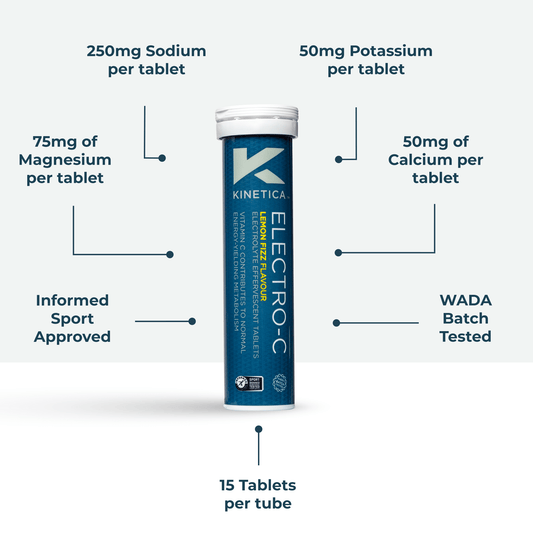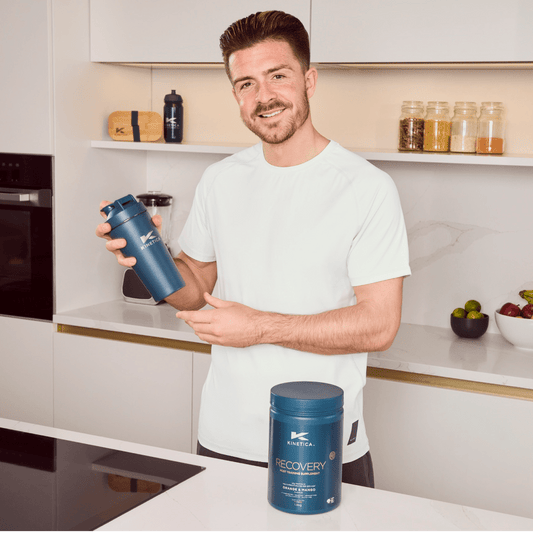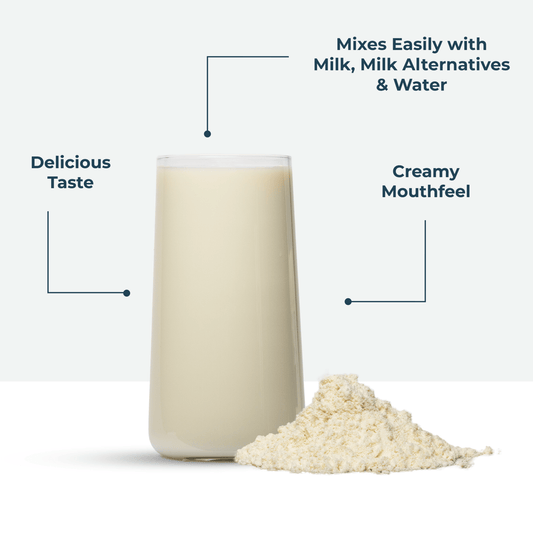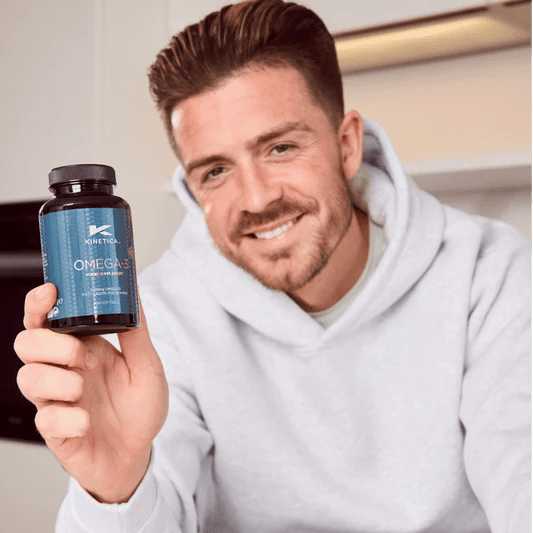Post-Match Recovery: Refuelling and Repairing After Football Matches

The final whistle blows. You shake hands, walk off the pitch, and feel that familiar mix of exhaustion and satisfaction. Whether it was a tough battle, a big win, or a frustrating loss, your body has gone through the wringer. Muscles aching, legs heavy, mind replaying key moments. But here’s the thing—what you do next is just as important as what happened on the pitch.
Football matches heavily deplete glycogen stores. Research shows about a 42% drop in muscle glycogen during a 90-minute match, leaving nearly half of muscle fibers completely empty by the final whistle. Low muscle glycogen is associated with reduced skill execution and impaired decision-making on the pitch, and it may also increase the risk of injury in the late stages of a match when fatigue is high (Vigh‐Larsen et al, 2022).
As a footballer and a performance nutritionist, I know first-hand how easy it is to overlook recovery. You might be buzzing from the match, rushing to celebrate with teammates, or maybe frustration makes you want to skip straight to bed. But if you want to show up stronger for the next session, your recovery starts now.
Let’s break down how you can refuel and repair properly to maximize your performance and avoid these drop offs and injury risks.
The 30-Minute Window: Get the Basics Right
The first 30 minutes after a match is a golden opportunity to kickstart your recovery. Your muscles are depleted, your energy stores are drained, and your body is primed to absorb nutrients. If you miss this window, your recovery slows down, increasing fatigue and soreness.
In one study, players who received a carbohydrate supplement after a match had their performance and muscle glycogen levels restored more effectively than those who did not. They also experienced less delayed-onset muscle soreness, indicating quicker recovery. Adding protein to their post-match carb source further enhanced recovery – which has been shown to reduce muscle soreness and lower creatine kinase levels (a marker of muscle damage) compared to carbs alone. (Nédélec, M., et al, 2013)
What to do right after the match:
- Rehydrate: Start with fluids. You’ve lost sweat, even in cold weather. Prioritize water or an electrolyte drink, especially if the match was intense.
- Replenish carbohydrates: Your glycogen stores (the fuel for your muscles) need replenishing. Quick-digesting carbs like a sports drink, a smoothie, or a recovery shake can help.
- Repair: Protein powder helps repair muscle damage and promotes adaptation. A simple flavoured milk ticks all three of the boxes above - Fluids to rehydrate, carbohydrates to replenish and protein to repair.
The Bigger Picture: Your Post-Match Meal
Even with optimal carb intake, it can take 2–3 days to fully restore muscle glycogen after a match (Krustrup et al, 2011), so it’s not enough to just consume your post match shake on its own. Within 1-2 hours of finishing the match, you need a proper meal to continue refueling and repairing.
What this meal should include:
- Lean protein (chicken, beef, fish, eggs, tofu) to rebuild muscles
- Quality carbohydrates (rice, potatoes, pasta, whole grains) to restore energy
- Healthy fats (avocado, nuts, olive oil) to support overall recovery
- Micronutrients from vegetables to help reduce inflammation and replenish lost minerals.
Some examples include: A grilled chicken and rice bowl with roasted veggies and a side of fruit. Chicken & Pasta with some veg, A Burrito or burrito Bowl, Homemade lasagne with a side of veg, a few slices of pizza with a side of fruit as a dessert.
Hydration: More Than Just Water
Most players think hydration is just about drinking water. But after 90 minutes of sweating, you’ve also lost electrolytes that support muscle function and prevent cramps.
Key hydration strategies:
- Add electrolytes to your water.
- If your urine is dark, you need to drink more fluids over the next few hours until light and pale in colour.
- Rehydrate consistently, not just in one go. Sip water regularly instead of chugging it all at once.
Sleep: The Most Overlooked Recovery Tool
Nutrition is critical, but if you’re not sleeping well, you’re missing the most powerful recovery tool. Deep sleep is when muscle repair happens, hormones reset, and your nervous system calms down. After a match, adrenaline might still be running high, making it harder to wind down.
Athletes sleeping under 8 hours per night are about 1.7 times more likely to get injured than those who sleep 8 hours or more (Milewski, M.D, et al, 2014). A study on elite youth athletes found that poor nutrition practices combined with short sleep duration significantly raised the odds of sustaining new injuries, highlighting that nutrition intake and sleep volume are both crucial factors in injury incidence (Von Rosen et al, 2017).
Ways to improve post-game sleep:
- Reduce screens and social media before bed—blue light interferes with sleep quality.
- Have a wind-down routine (stretching, deep breathing, or journaling thoughts from the game).
- Keep your room cool, dark, and quiet for the best recovery environment.
- Omega 3 has been found to help aid sleep.
Mental Recovery: Don’t Carry the Game With You
Physically recovering is one thing, but what about your mind? A bad performance can stick with you, making you overanalyze every mistake. On the flip side, a great game can make you feel invincible, but if you don’t reset, complacency can creep in.
Ways to mentally recover:
- Reflect, then move on. Write down 3 things you did well and 1 thing to improve. Then close that chapter.
- Shift your focus to what’s next. Dwelling on a match won’t change the outcome—your response to it will.
- Stay connected with teammates. Whether it was a win or loss, a strong team culture helps reset and move forward together.
The 24-Hour Rule: Continue the Process
Recovery doesn’t stop after a single meal or a night’s sleep. The next 24 hours are key to how you feel at your next training session.
Checklist for the next day:
- Continue eating nutrient-dense meals.
- Keep hydration levels high.
- Get in some light movement (a short walk or mobility work).
- Prioritize sleep for full recovery.
Final Thoughts: Make Recovery a Habit, Not an Afterthought
Post-match recovery isn’t about doing something once in a while—it’s about making it part of your routine. The best athletes aren’t just the ones who train hard; they’re the ones who recover smart. Your body is your most valuable tool—treat it like one.
So next time you step off the pitch, think about what’s next. Rehydrate, refuel, rest, and reset. Your next game starts with how well you recover from this one.
You put in the work on the pitch. Now make sure you’re putting in the work off it












